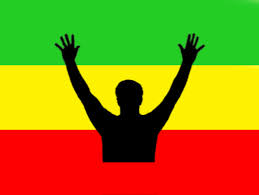|
It seems there is a big misunderstanding in the concept of reconciliation. I intend to write in series if the need warrants it. In this article, I would try to respond to the article written by Lydia entitled: “A Response to Zelalem Eshete P.H.D.” that was posted on Zehabesha on March 25. Lydia writes in accusation mode:
“By saying let’s “stand by the gap”, what gap can we stand by in today’s Ethiopia as if the Amharas have the upper hand or are somehow better positioned to fill in? Perhaps we are the missing piece to fill the void since we are pushed to the curb by false accusations of things that have happened a thousand years ago that nobody has evidence of or historical citation to back the accusations but some crooked TPLF “historians”. Is it they who are funding you to re-write history? Here is my response, dear sister: The popular phrase of “standing in the gap” is coined first in the Bible: “And I sought for a man among them, that should make up the hedge, and stand in the gap before me for the land, that I should not destroy it: but I found none” Ezekiel 22:30 KJV. Here is the background: The sin of the people had gotten so bad that God had begun to seek out a person who would intercede for the land by standing in the gap, but he found none. I repeatedly stated that it doesn’t matter if we personally do not have a prejudice against another ethnic group. I even ask our children who have no clue whatsoever, to learn about our past and stand in the gap and become part of this historic process by acknowledging the shame. In fact, in my second article, I stated that it takes innocence to take on the ills of the past generation. Now that you established that you and your family are the innocent ones, I invite you to stand in the gap along with me for the future of Ethiopia. Our forefathers who are guilty of the crime are gone, and those who share their values at the present may never see the light to accept responsibility and own up their mistakes. Unless we take responsibility to stand in the gap, they will continue to make us prisoners of our past into eternity. Should you accept the challenge: here is the first thing we do as Amhara ethnic people: confess. Again, don’t misunderstand me by thinking the religious terminology. I repeat the definition I provided in my original article for what “confess” means. The Greek word for “confess” is homologeo, which means: “to say the same thing”. Therefore, I am asking you to join me to stand in the gap, and confess (say the same thing as those who have something against us say). That is how Ethiopia starts to speak the same language. As we affirm and acknowledge the pains of our brothers and sisters, then there is a chance for healing. This is the first baby step. Don’t be sidetracked by pointing fingers at others. We are not in a courtroom to figure out which ethnic group is guilty. This is reconciliation, where you focus on your actions to ask forgiveness and grant forgiveness to those who did you wrong. Accusation has no place here. This is a road less travelled. If you want to learn the mistakes of our forefathers in our 3,000 years history, then I ask you to open up your mind and tune in and listen those who have been speaking their hurt loudly for years. They are not going away by just ignoring as if they don’t exist or giving them a deaf ear. I hope you understand. Dr. Zelalem may be reached at [email protected]
2 Comments
woygud
3/31/2014 07:46:10 am
This an edited comments I posted on Zehabesha with few points added.
Reply
Leave a Reply. |
Details
MemberZelalem Eshete, Ph.D.
Deeper Walk With God Book on Ethiopia
This book makes a case for a paradigm shift in our thinking on the matter of Ethiopia. Instead of feeling powerless in our usual political saga, ethnic divide, and religious tensions, the book motivates us to look deeper, rediscover our true identity, and arise to make change. The greater power of change is with the people. The world has heard enough of our suffering. Let's spotlight the other face of Ethiopia: To Be Known As We Truly Are.
The world has heard enough of our lack of civilization. Let's spotlight the other face of Ethiopia: We Are One Big Intelligent Family. The world has heard enough of our poverty. Let's spotlight the other face of Ethiopia: Going Global Together. |

 RSS Feed
RSS Feed